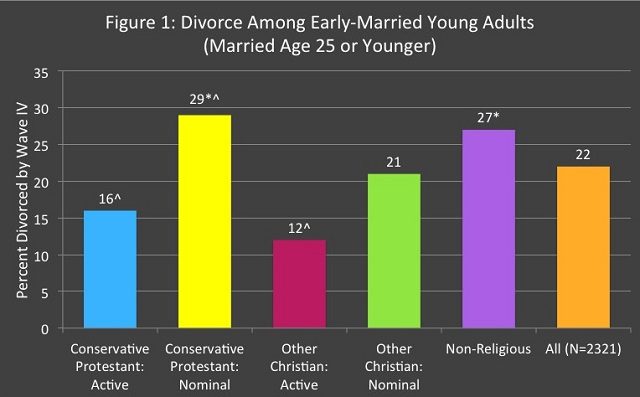
This is an installment of my series of replies to an article by Dr. David Madison: a pastor in the Methodist Church for nine years, who has a PhD in Biblical Studies from Boston University. It’s called, “Things We Wish Jesus Hadn’t Said” (Debunking Christianity, 7-21-19). His words will be in blue below. Dr. Madison makes several “generic” digs at Jesus and Christianity, in the written portion (it details a series of 12 podcasts):
A challenge for Christians: If you’re so sure Jesus existed, then you have some explaining to do. A major frustration is that, while believers are indignant at all the talk about Jesus not existing, they don’t know the issues that fuel the skepticism—and are unwilling to inform themselves.
Yes, I’m up to the “challenge.” No problem at all. I’m not threatened or “scared” by this in the slightest. It’s what I do, as an apologist. The question is whether Dr. Madison is up to interacting with counter-critiques? Or will he act like the voluminous anti-theist atheist polemicist Bob Seidensticker?: who directly challenged me in one of his own comboxes to respond to his innumerable attack-pieces against Christianity and the Bible, and then courageously proceeded to utterly ignore my 35 specific critiques of his claims as of this writing. We shall soon see which course Dr. Madison will decide to take. Anyway, he also states in his post and combox:
[S]o many of the words of Jesus are genuinely shocking. These words aren’t proclaimed much from the pulpit, . . . Hence the folks in the pews have absorbed and adored an idealized Jesus. Christian apologists make their livings refiguring so many of the things Jesus supposedly said.
The gospels are riddled with contradictions and bad theology, and Jesus is so frequently depicted as a cult fanatic—because cult fanatics wrote the gospels. We see Jesus only through their theological filters. I just want to grab hold of Christian heads (standing behind them, with a hand on each ear) and force them to look straight ahead, unflinchingly, at the gospels, and then ask “Tell me what you see!” uncoached by apologist specialists, i.e., priests and pastors, who’ve had a lot of practice making bad texts look good. . . . I DO say, “Deal with the really bad stuff in the gospels.” Are you SURE you’ve not make a big mistake endorsing this particular Lord and Savior? That’s the whole point of this series of Flash Podcasts, because a helluva lot of Christians would agree, right away, that these quotes are bad news—if no one told then that they’ve been attributed to Jesus.
Of course, Dr. Madison — good anti-theist atheist that he is — takes the view that we are not at all sure whether Jesus in fact said anything recorded in the Gospels in the first place. I don’t play that game, because there is no end to it. It’s like trying to pin jello to the wall. The atheist always has their convenient out (when refuted in argument about some biblical text) that Jesus never said it anyway [wink wink and sly patronizing grin], and/or that the biblical text in question was simply added later by dishonest ultra-biased Christian partisans and propagandists. It’s a silly and ultimately intellectually dishonest game, and so I always refuse to play it with atheists or anyone else, because there is no way to “win” with such an absurdly stacked, purely subjective deck.
In my defense of biblical texts, I start with the assumption that the manuscripts we have are quite sufficient for us to know what is in the Bible (believe it or not). Going on from there, I simply defend particular [supposedly “difficult”] texts, and note with appropriate argumentation, that “here, the Bible teaches so-and-so,” etc. I deal with the texts as they exist. I don’t get into the endlessly arbitrary, subjective games that atheists and theologically liberal biblical skeptics play with the texts, in their self-serving textual criticism.
Dr. Madison himself (fortunately) grants my outlook in terms of practical “x vs. y” debate purposes: “For the sake of argument, I’m willing to say, okay, Jesus was real and, yes, we have gospels that tell the story.” And in the combox: “So, we can go along with their insistence that he did exist. We’ll play on their field, i.e., the gospels.”
Good! So we shall examine his cherry-picked texts and see whether his interpretations of them can stand up to scrutiny. He is issuing challenges, and I as an apologist will be dishing a bunch of my own right back to him. Two can play this game. I will be dealing honestly with his challenges. Will he return the favor, and engage in serious and substantive dialogue? Again, we’ll soon know what his reaction will be. A true dialogue is of a confident, inquisitive, “nothing to fear and everything to gain” back-and-forth and interactive nature, not merely “ships passing in the night” or what I call “mutual monologue.”
*****
Dr. Madison’s sixth podcast of twelve is entitled: “On Mark 12:30, Jesus’ command to love God at the all-all-all level.” Here is the passage in question:
Mark 12:30 (RSV) and you shall love the Lord your God with all your heart, and with all your soul, and with all your mind, and with all your strength.
Our ever-wise critic of God and all things biblical and Christian, Dr. Madison, pontificates about this as follows:
We are dealing with a colossal case of cosmic narcissism. God expects, God demands, God gets off on human adoration? . . . How does this possibly make sense? . . . This makes God seem like an insecure monarch . . . Here’s Jesus trying to make us love God. No thank you. A God who is top-heavy with ego . . . this is bad theology; this is bad religion. . . . mindless cult fanaticism. . . . The God of the Bible is a horrible God: so much anger and wrath.
The Bible teaches that God is in need of nothing:
Acts 17:24-25 The God who made the world and everything in it, being Lord of heaven and earth, does not live in shrines made by man, [25] nor is he served by human hands, as though he needed anything, since he himself gives to all men life and breath and everything.
I basically dealt with this issue in my paper, “Why Do We Worship God? Dialogue with an Atheist” (5-11-18). I wrote:
If we’re talking about the supreme being of the universe, then the respect, leading up to worship and praise, is all that much more to be expected, and the natural state of things.
God “needs” no worship whatever because in Christian theology, He needs nothing. He’s completely all-sufficient and self-sufficient. It’s for our sake that we “render unto God’s what is rightfully God’s.”
I cited my friend, Deacon Steven D. Greydanus in this paper. He explained it very eloquently:
[N]othing that happens, nothing we do, can diminish or increase God or his beatitude in any way. We say metaphorically that our sins anger or grieve God and that our virtues delight him, but this is analogical language. He cannot become any happier or sadder than the infinite beatitude he enjoys necessarily and absolutely. . . .
Worship is not something we offer to God to make him happy. Rather, in worship we grow closer to God to our benefit. Worship, like virtue, knowledge of truth, and appreciation of beauty, is for our good.
I added:
I searched “demand worship” in my online RSV Bible and it never appears. God does say in the Ten Commandments: “You shall have no other gods before me. . . . you shall not bow down to them or serve them” (Ex 20:3, 5). It is the purpose and nature of such worship that [atheists] are not grasping. As I have explained, it’s for our good, not God’s. Why does God give His commands, which include monotheism and worship of Him alone?:
Deuteronomy 4:40 Therefore you shall keep his statutes and his commandments, which I command you this day, that it may go well with you, and with your children after you, and that you may prolong your days in the land which the LORD your God gives you for ever.
Deuteronomy 5:33 You shall walk in all the way which the LORD your God has commanded you, that you may live, and that it may go well with you, and that you may live long in the land which you shall possess.
Deuteronomy 6:18 And you shall do what is right and good in the sight of the LORD, that it may go well with you, . . .
Deuteronomy 12:28 Be careful to heed all these words which I command you, that it may go well with you and with your children after you for ever, when you do what is good and right in the sight of the LORD your God.
Deuteronomy 28:1 And if you obey the voice of the LORD your God, being careful to do all his commandments which I command you this day, the LORD your God will set you high above all the nations of the earth. [all the blessings God will give them are then listed in 28:2-14; then 28:15 states, “But if you will not obey the voice of the LORD your God or be careful to do all his commandments and his statutes which I command you this day, then all these curses shall come upon you and overtake you.” This is followed by a list of calamities in 28:16-67.]
It’s always the same, and this is the story of the Old Testament and the ancient Jews. God tells them to follow His laws and commands and everything will be wonderful for them. They will have manifold blessings. Then they decide not to and to rebel against God and it goes terribly, just as God said it would. And then these same men (and atheists today who think like them) blame God rather than their own stupidity and stubbornness. But if we sum up what God wants, as expressed in the Bible, here it is:
1 Timothy 2:3-4 . . . God our Savior, [4] who desires all men to be saved and to come to the knowledge of the truth.
Atheists are simply projecting human emotions onto God, as if He is some sort of high maintenance drama queen who needs constant attention.Ironically, this is what fundamentalists often do, too (hence they tend to reject anthropopathism and anthropomorphism, which entail non-literal concepts). They are both unsophisticated, improperly thought-through views (i.e., referring to this one topic of worship). And [atheists] want to make Him a despot and tyrant, which is not at all how the Bible presents Him. . . .
We don’t worship God because He needs it (He needs nothing and is entirely self-sufficient), but because we need it, as a fundamental attribute of a human being, who came ultimately from God in creation and through parents in procreation. God made it that way because He knows that we are most happy and fulfilled living as He intended it to be: in as close of a union with Him as possible. Likewise, the parent knows that children will be happier if they accept both the love and correction of the parents. If they reject both, they will likely have problems in their lives. . . .
We’re saying that God is inherently infinitely greater than we are. He created the universe. He gave us life (as parents also do in a lesser sense). He loves us and blesses us in so many ways. So we praise Him and worship Him for Who He is.
Another partial analogy would be how we act towards those we are in love with. Look at any love poems and you find rapturous praise, lavish, over-the-top compliments, placing this loved one at the very center of our existence and the meaningfulness of our life and indeed our happiness and fulfillment. So we praise and compliment in the most extravagant ways.
Yet when it comes to God (even trying to imagine the Christian God for a second: that you reject or deny) you can’t comprehend that we praise and worship Him because of what we believe His loving, all-benevolent nature is; because He created us and fulfills us when we serve Him, and due to all the wonderful things He has done or made possible to do. What is so mysterious or difficult to understand about that, truly baffles me. I don’t have a clue.
But if you redefine what God is like (the ubiquitous arbitrary, capricious tyrant of the atheist imagination), then yes, I can see why you couldn’t comprehend worship of a Being like that.
The RationalChristianity.Net site offers some further insight on the question:
Some people object that God doesn’t merely accept worship, he demands it. They picture God as an egotistical or even insecure tyrant who insists that everyone tell him how great he is. This is not an accurate portrayal, for God’s command to us is, “Love the Lord your God with all your heart and with all your soul and with all your strength” (Dt 6:5), not “Tell me five times a day how wonderful I am.” Worship is included as part of God’s command to love him, for it’s a proper expression of our love for someone who is perfect and so much above us in every way. If it’s fitting for us to praise our friends and family when they do well, how much more appropriate it is for us to praise a perfect God! When we love God and realize how awesome he is, worship and praise are natural results.
God’s instruction to worship him is only a demand in the sense that God’s other moral laws are demands. God doesn’t command us not to murder because he’s a dictator, but because it’s morally right (and therefore ultimately in our best interests). Similarly, God tells us to worship him because it’s the proper way for us to relate to him and because it’s to our benefit to do so (see above).
Something else to consider: If God were vain, one would think that he would want pictures and statues of him everywhere, yet he commanded that no one make images of him. Instead, he told the Israelites to keep copies of his commands everywhere (Dt 6:6-9), so that they would remember them and obey them and receive blessings as a result (Dt 6:18).
I would add that God is also eager to share His glory (hardly a quality of a “narcissist”), as I have documented. And God also praises human beings:
Romans 2:29 . . . His praise is not from men but from God.
1 Corinthians 4:5 . . . Then every man will receive his commendation from God.
The Christian attitude is: “We love, because he first loved us” (1 John 4:19). God’s love (which we can reject, because He gives us that freedom) is very tender, and is compared to a mother hen and her chicks:
Matthew 23:37 O Jerusalem, Jerusalem, killing the prophets and stoning those who are sent to you! How often would I have gathered your children together as a hen gathers her brood under her wings, and you would not!
Scripture is chock-full of passages detailing God’s intense love for human beings.
Apologist Glenn Miller has offered eloquent and wise thoughts on this topic, as usual, with which I shall close:
I had by this time discovered that a person’s happiness, well-being, and personal actualization was bound up with the number and intensity of “healthy” relationships maintained–with family, with other people, with authority, with secondary groups, with institutions, with self, with ‘nature’, with God. Defining ‘healthiness’ within a relationship typically involved ‘working within the structures that inherently defined the relationship’. For example, if I were a child, it was healthy to respect my parents. If I was a parent, it was healthy to encourage and urge my children to develop. If I was a citizen, it was healthy to be “conforming” but still “dissenting” enough to make a contribution to the development, goals, and effectiveness of the institutions.
So, if one of my primary (if not THE primary) relationships in life was that of my relationship to the God of the Universe, then my happiness/well-being/actualization would be adversely affected by an improper, dysfunctional, or ignored relationship with the Living God. It is ultimately restrictive/destructive for a person to have healthy relationships in only a few of the major areas–we generally must have at least a ‘working’ relationship with ALL of the relationships (that we are members of). And too, if a person is ‘doing well’ in all of the relationships, but IGNORING/FIGHTING God, their internal health is not at the highest level it should be.
If the ‘structures of the relationship’ with God involves an awareness of His qualitative and quantitative differences from me (suitable to encourage me to honesty with, and dependence on, Him), then for God to seek for me to admit these differences was a matter no longer of just intellectual honesty, but now was a matter of seeking after my happiness, well-being, and actualization. It was now to my benefit (given the very definition of what I was as a creature!) to do this. And, accordingly, it didn’t look quite as ‘pathological’ for God to desire this!
***
Photo credit: [Max Pixel / CC0 public domain license]
***



























